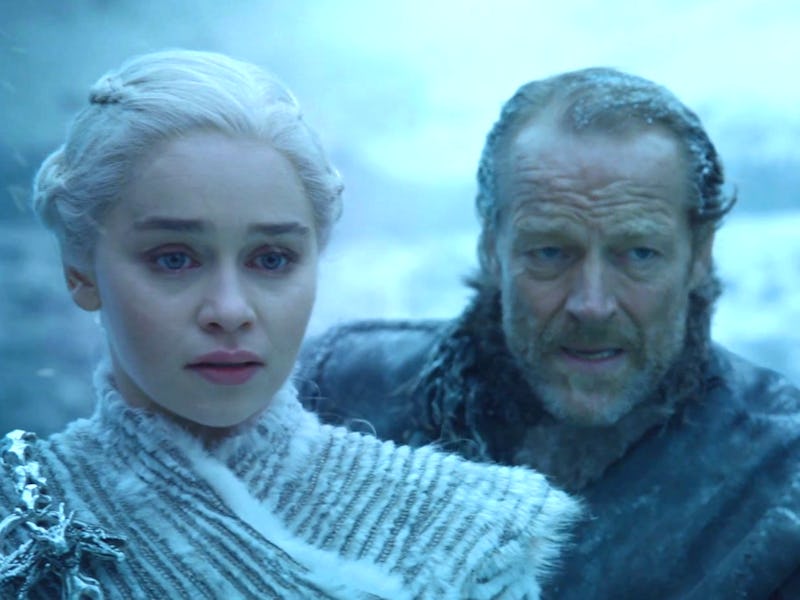Time has always been a bit flexible on Game of Thrones — and never more so than in Season 7. The show’s penultimate season has played fast and loose with travel times and distances more than any other. In a recent interview, director Alan Taylor admitted the timeline of “Beyond the Wall” doesn’t quite hold up under scrutiny.
In the episode, Jon and his men get stranded in the far north. Jon sends Gendry sprinting back to Eastwatch. A raven then flies from Eastwatch to Dragonstone — which is no small distance — and Daenerys hops on a dragon to fly from Dragonstone to Eastwatch. During all this back-and-forth, we only see one night pass onscreen.
On Monday, Taylor told Variety,
We were aware that timing was getting a little hazy. We’ve got Gendry running back, ravens flying a certain distance, dragons having to fly back a certain distance…We tried to hedge it a little bit with the eternal twilight up there north of The Wall. I think there was some effort to fudge the timeline a little bit by not declaring exactly how long we were there. I think that worked for some people, for other people it didn’t…I think we were straining plausibility a little bit, but I hope the story’s momentum carries over some of that stuff.
Sure, “Beyond the Wall” had a lot of momentum, with big battles and a game-changing dragon death. But it’s also impossible to ignore the fudged timeline.
Here’s a map one fan made earlier in the season to compare Jon Snow’s travels (highlighted in green) with the White Walkers (shown in red). Note that the longest green line on the right that goes through the sea shows the distance from Dragonstone to the north of Eastwatch.
This map shows the distance from Dragonstone to Eastwatch.
“Beyond the Wall” asks us to believe that a raven flew along the span of that gigantic green line, and then Daenerys hopped on a dragon and flew along it — all in time to rescue Jon and his buddies after one night.
In the interview, Taylor notes, “It’s cool that the show is so important to so many people that it’s being scrutinized so thoroughly.” But the size of the fan base has nothing to do with it. Game of Thrones previously marketed itself as “realistic” gritty fantasy with stakes. No matter what the size of the fan base, early seasons established a world with rules. Most people in the Seven Kingdoms think White Walkers aren’t real, dragons haven’t been born in many years, bastards are looked down upon, the good guys often die, and it takes a long-ass time to travel anywhere.
In any fantasy narrative, throwing established rules out the window is dangerous since it’s a genre that relies upon world building. A world doesn’t make sense — and isn’t compelling — if it has no clear limits, because then there are no stakes. Whether there are 10 fans or millions of fans, a fantasy story can’t debunk its own rules and hope that nobody notices.
The Game of Thrones Season 7 finale airs Sunday, August 27 on HBO.
